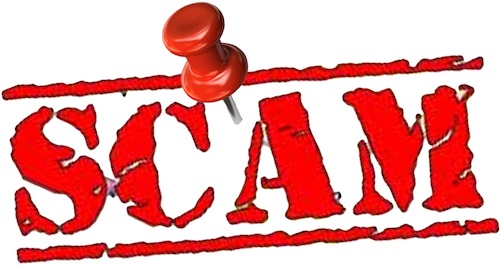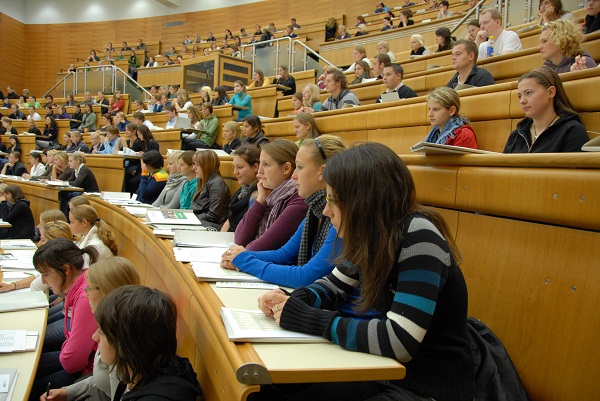Children are a wonderful gift, but they do cost money. Food, clothes, education and toys all have to be paid for. Child benefit (Kindergeld) helps parents afford them. It is granted as a tax refund, primarily to meet the constitutional rule that income is untaxable up to a child’s subsistence level. Any child benefit awarded over and above this amount is paid to support the family.
Contents
The Basics
Child benefit is paid regardless of the parents’ income. Under a system of tax relief for families, child benefit takes the form of a tax refund, a tax-free allowance for children and a tax-free allowance for child-care and vocational training.
Child benefit is paid throughout the year.
When assessing income tax, the tax office checks that the amount of child benefit paid satisfies the constitutional rule on tax relief (in other words, that the parents have received enough child benefit to cover the tax refund due to them) If not, their tax bill is reduced by the tax-free allowance for children and a tax-free allowance for child-care and vocational training minus the child benefit they have already received. If this calculation comes out to the parents’ advantage, the child benefit payments are left as they stand.
Child benefit is paid out by the family benefits department of local employment agencies.
The law governing child benefits
The law on child benefit is set out in the Income Tax Act (Einkommensteuergesetz) and the Federal Child Benefit Act (Bundeskindergeldgesetz).
How much child benefit you receive?
Child benefit is paid monthly as follows
- €184 for each of the first two children (changed to €190 in Jan 2016)
- €190 for the third child (changed to €196)
- €215 for the fourth and each additional child (changed to €221)
Tax-free allowance for children and tax-free allowance for child-care, child-raising and vocational training
If the child benefit payments do not reach the untaxable subsistence level for a child, a tax-free allowance for children (€4,368 a year) and a tax-free allowance for child-care, child-raising and vocational training (€2,640 a year) are deducted from the parents’ taxable income. The tax relief from these allowances is decreased by the amount of child benefit already paid out.
Whether the total tax relief comes up to the amount required by the constitution is determined in the course of income tax assessment.
Who can claim child benefit (Kindergeld)?
- Anyone living in Germany and has a child in Germany can claim benefits.
- Foreign citizens require a valid permanent residence permit (Niederlassungserlaubnis) or a temporary purpose specific residence permit (Aufenthaltstitel).
- Only one person can receive the money paid out on behalf of the child.
- If the parents are separated or divorced, child benefit is paid to the parent the child lives with. In the case of children who do not live with their parents, child benefit is usually paid to the person in whose household the children live, or who primarily supports them.
How and Where to Claim?
To claim child benefit, you must apply for it. The family benefits department (Familienkasse) at your local Employment Agency (Agentur für Arbeit) will be pleased to help – or if you are in public service, your employer’s family benefits department.
The Federal Employment Agency (Bundesagentur für Arbeit) website (www.bundesagentur-fuer-arbeit.de) contains forms and addresses to the local Family benefits department (Familienkasse).
For whom can one claim child benefit?
You can also claim child benefit for:
- Your spouse’s children if they live in your household
- Foster children if they live in your household, are long-term members of your family, and their parents no longer have custody over them
- Grandchildren, if you have taken them into your household. Do you meet any of these criteria? If so, you can certainly claim child benefit for any children aged 18 or less.
The age limit is 25 for the following:
- Young people in education or training, hasn’t completed their first degree or vocational qualification, and does not regularly engage in paid work for more than 20 hours a week. A short break between two education or training stages still counts as education or training.
- Young people doing a year of voluntary community or environmental service under the Youth Voluntary Service Act (Jugendfreiwilligendienstgesetz), voluntary service in the EU Youth Action Programme, other voluntary service abroad under Section 14b of the Civilian Alternative Service Act (Zivildienstgesetz), “weltwärts” development service in accordance with the Federal Ministry of Economic Cooperation and Development
- Young people taking part in the Federal Voluntary Service Act (Bundesfreiwilligendienstgesetz).
- Young people unable to start or continue vocational training for lack of a training place.
- Up to the age of 21, young people without employment and registered as job seekers with an Employment Agency.
Exceptions:
In certain circumstances, parents can continue to claim child benefit when their children are over 25
- Child benefit is paid for sons over 25 who are still in education or training and have completed compulsory military or civilian service, or a period of equivalent service (for example as a development worker). The age limit of 25 is then raised by the length of their statutory basic military or civilian service. For example, parents whose son has completed nine months of basic military service can claim child benefit until he is 25 years and 9 months old.
- You can continue to claim child benefit for disabled children over 25 if they became disabled before this age and cannot support themselves.
- Orphans receive €184 in child benefit a month if no one else can claim child benefit or equivalent payments for them. The same applies for children who do not know where their parents are.
Supplementary child benefit (Kinderzulage (früher Baukindergeld)
Claimants who have built or purchased their own home can claim supplementary child benefit (Kinderzulage) for up to eight years, in addition to the normal child benefit, as part of the grants paid to encourage home
ownership.
Owner-occupiers of homes for which the contract of sale was signed or which the claimants began building before 1 January 2004 receive €767 a year for each child.
Claimants who purchased or began building since then but not later than 31 December 2005 receive €800. Because tax concessions for home owners (Eigenheimzulage) were abolished on 1 January 2006, supplementary child benefit is no longer paid to claimants who build or purchase their own homes.
Claimants who were previously granted the tax concession for home owners will continue to receive supplementary child benefit for the remainder of the eight-year period.






